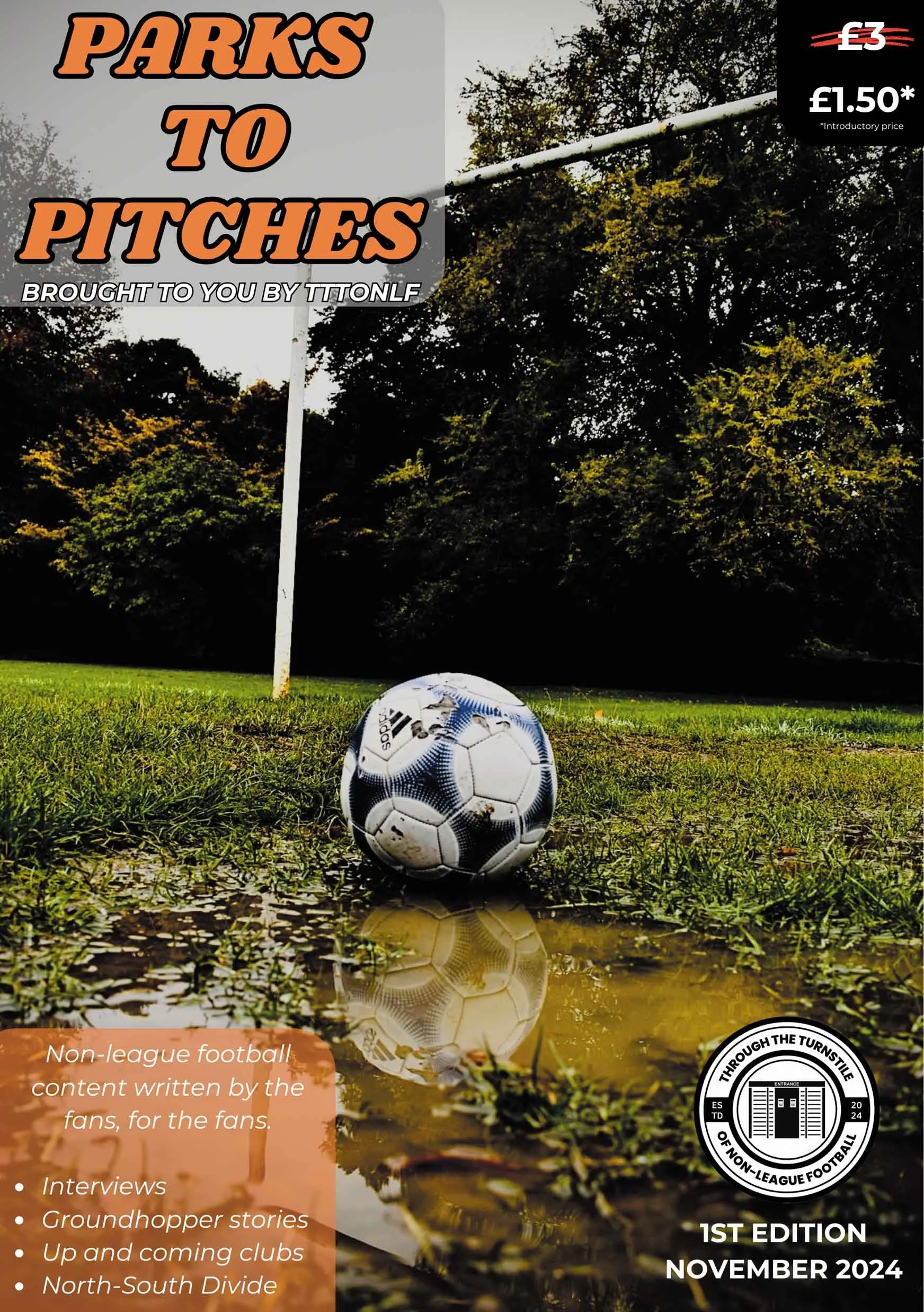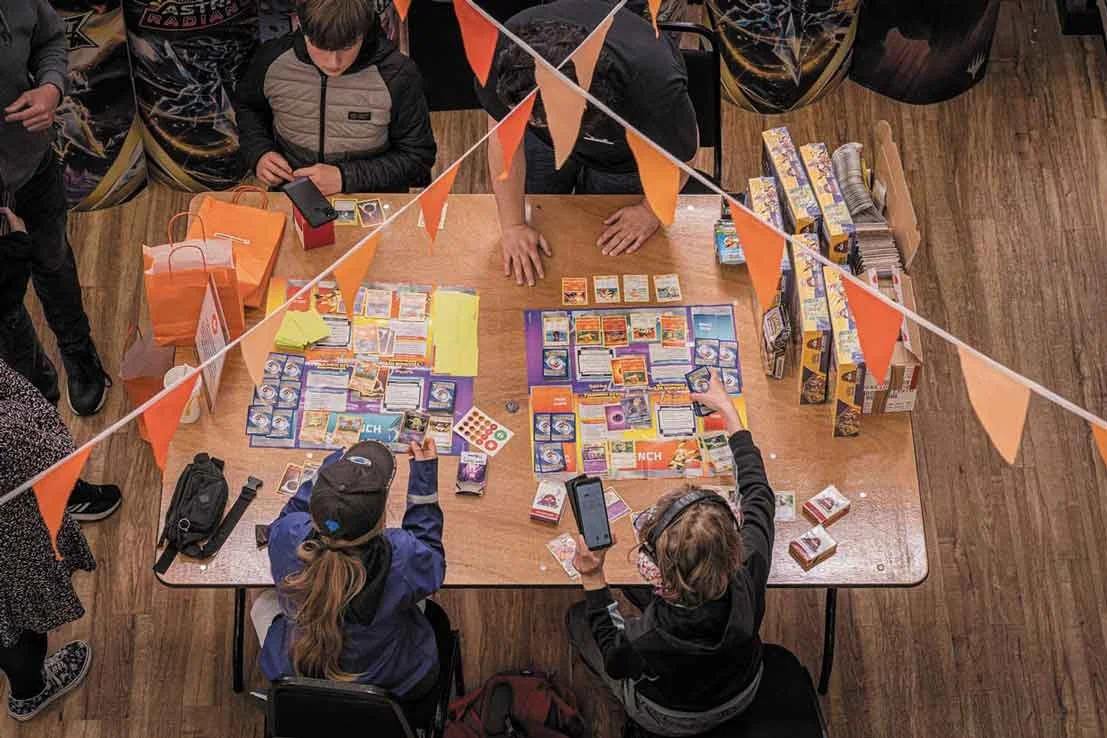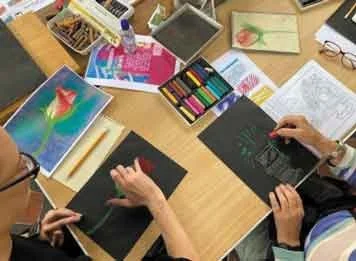Lovorika Margate - rising against the toxic fragrance industry
Daphna and Jason Rowe launched their own scent brand Lovorika in response to the lack of transparency in the perfume industry, writes Marijke Hall
“To change hearts and minds of pretty much the entire population of the Western world is almost impossible to do. But people need to know the risks of synthetic perfume - that the word ‘fragrance’ on a bottle can hide hundreds of toxic chemicals.”
Don’t they say you can sense danger? That your nose is the fifth sense, helping sniff out something that seems a bit off.
The problem is when that danger is covered up with a sweet smell, sold by a luxury brand and endorsed by a celebrity we all want to be.
This, it turns out, is a pretty significant part of the fragrance industry.
We’re not talking cheap brands out of the back of a lorry. We mean perfumes seen on the shelves of department stores, the brands we have grown up with and coveted.
According to multiple studies, the words ‘fragrance’ or ‘parfum’ can hide a multitude of sins, namely toxic chemicals linked to cancer, hormone disruption and respiratory problems.
But astonishingly there is no law requiring these potentially harmful ingredients to be listed on the bottles.
It means smelling good comes with quite the risk. Not that it has to, of course.
Margate-based Lovorika (@lovorika_official) flies in the face of this toxic practice, instead producing 100% natural hand-crafted fragrances, using the highest-grade essential oils, absolutes, resins, CO2 and natural isolates, sourced sustainably.
The ethical fragrance brand embraces ‘old world alchemy and new world vegan, sustainable luxury’.
Its founders Daphna and Jason Rowe actively campaign for transparency and regulations in the wider perfume world, an industry they say is a secretive, self-regulated money-making machine that risks people’s health while keeping production cheap and profits high.
Baroness Bennett has raised questions on their behalf in the House of Lords, questioning what requirements are placed on manufacturers to show the safety of perfume products.
“Our skin is our largest organ, it eats and drinks, so anything that goes on to our skin, we’re still consuming”
Daphna says most people don’t realise how toxic synthetic perfumes - that’s the everyday brands we use - actually are.
“That is pretty much by design that we’re not aware because the fragrance industry is self-regulated,” she says. “So they don’t legally have to answer to anybody. The main problem is the lack of transparency.
“With food, people have fought to get the ingredients or whatever they’re allergic to listed properly on labels because we’re consuming it.
“Our skin is our largest organ, it eats and drinks, so anything that goes on to our skin, we’re still consuming.
“There needs to be better legal procedures in place to make sure we’re aware of what we’re actually getting.
“And unfortunately, it’s incredibly toxic. Perfumes are chemically closer to petrol than they are to anything botanical.
“Everything from the really high-end brands to the cheaper brands, they’re using petrochemicals. And it’s because that’s cheaper than using natural ingredients.”
So then why are all the top brands so expensive, with some setting you back more than £100 a bottle?
“Sadly, the reason is that what we’re actually paying for is not better ingredients but marketing campaigns for celebrities to promote their products,” says Daphna. “Big companies are making huge profits by using synthetic ingredients. It’s a massive industry.”
She points us to a report entitled Right To Know by the Breast Cancer Prevention Partners which makes for some shocking reading, highlighting well-known brands that contain hazardous chemicals.
Yet there are no laws requiring companies to declare these ingredients on the packaging. The word ‘fragrance’ or ‘parfum’ will suffice.
“The report basically says avoid synthetic fragrances full-stop to avoid the risk of breast cancer. It’s damning,” she says. “You have to be wary of any ingredient labelled simply ‘fragrance’ or ‘parfum’.
“This singular word is the loophole where they can hide hundreds of toxic chemicals that may consist of carcinogens, respiratory irritants, hormone disruptors, allergens and environmental pollutants.”
Daphna says she understands people’s apathy when it comes to being told continuously about what they should and shouldn’t be using.
“I know that it gets exhausting after a while and people are like ‘What else can’t I f**king use?’ and I really get that.
“But this is us saying you can make an informed choice. It’s sort of like the difference between orange juice or artificial drink.
“You know, your whole life you’re being told you’re getting orange juice. But in actual fact you’re getting an artificial drink and there isn’t a single orange in it, just artificial sweeteners made to taste like oranges.
“Sometimes I want an artificial drink. But I just want to know that’s what I’m getting.”
Daphna says she started researching when living in London after suffering an allergic reaction to what she believed might have been the products used to clean the home they had just started renting.
At one point she was taken to A&E and put on steroids.
Intrigued by alternative medicines, she visited a herbalist and, after having acupuncture and drinking herbal teas, within a week her allergic reaction had gone.
“I already had a Master’s in psychology and it just sort of kicked in my hippy witchy side,” she says. “I started to read up on herbalism and that led to aromatherapy and I then got certified.
“Because I had that background in psychology, and I knew that scent was processed in the same part of the brain as emotions and memory, which is why it’s so visceral and why we’re so drawn to fragrance, I just started creating my own.
“And that’s when I realised that everything that’s on the market is synthetic. That it’s not natural.”
Legally, due to producing natural products, Daphna and Jason have to write what’s known as the International Nomenclature Cosmetic Ingredient on their labels - so the Latin botanical names - and also any allergens.
They say some manufacturers, however, claim their product is ‘natural’, even if they have just one drop of a natural ingredient.
“If you’re a company that is promoting the fact that it’s natural, like we do, you would want to put all of the Latin names to the actual oils you’re using,” explains Jason.
“Because then you’re proving that you’re natural.
“But they’re able to call themselves natural by putting one drop of let’s say orange blossom or jasmine in, and then the rest is synthetic - the same chemicals you would find in your floor cleaner.”
They also point out the damage synthetics are doing to the environment, with the chemicals going down the drain into the sea every time you shower.
“It seems like a very small amount, but if you multiply that by 40 million people, it’s a lot,” says Jason.
Daphna makes 100% natural perfume and body oils by hand in her apothecary at their home in Margate.
She also runs workshops where people can create their own.
“It’s just so much fun to do,” says Daphna. “And scent is so empowering that when you have your own fragrance, it just makes you feel incredible.”
So does natural smell better than synthetic perfume?
“I know perfume is a personal choice, but I absolutely think natural smells better,” says Jason. “I have to say that anyone who’s had our bespoke fragrance made or has used synthetics and then switched to ours, they will always say that now when they smell their old favourite perfume, it gives them a headache.
“I’m not saying switching all-out to naturals is the solution in the long-term, but I think it should be if done sustainably.
“If it’s done that way, then it’s incredible for everyone, including the environment.”
The couple say their mission isn’t to stop people wearing their favourite perfume - although they say they can create a natural perfume using similar scents - but to promote transparency within the industry.
“Manufacturers will say they don’t want to say what full ingredients they’re using because they don’t want someone to steal the formula,” says Jason. “But I always say that scents are like music - musicians don’t have to hide the chords they use. It’s just how you put those notes together.”
INFO: lovorika.com











